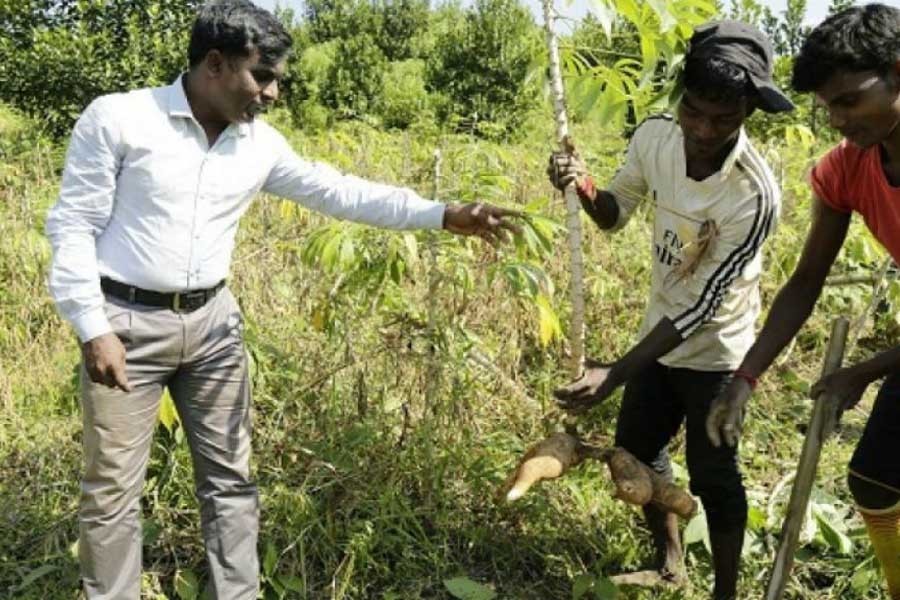A recent media report on export of a few consignments of potatoes produced by contract growers of Bangladesh Agricultural Corporation (BADC) is only a tiny flicker of the potential of export of horticulture produce, as well as fruits and vegetables under contract farming. For quite sometime, sector specialists have been stressing the need for bringing some major varieties of farm produce like potatoes, beans, tomatoes, gourds, and fruits and vegetables like pineapples, bananas, leafy vegetables etc under a country-wide network of contract farming to cater to both domestic consumption and export marketing. Despite acknowledging the merit of contract farming, so far, there have been some isolated efforts only-- on an experimental scale. Currently, the potato glut in some major potato growing regions of the country resulting in wastage and poor prices clearly indicates the need for comprehensive plans for contract farming, particularly for export. This is more so, because export of farm produce, fruits and vegetables in a big way can only be expected to materialise under a methodical approach-- a whole package called contract farming. This is because export deals under contract farming is capable of not only ensuring uniform quality of the produce but more importantly, of fulfilling compliance norms of the importing countries.
In the recent past -- in pre-pandemic times -- many consignments of farm products from the country were refused at the ports of importing countries. Shipments were denied access on various grounds of noncompliance. Shipments were also reportedly turned down due to presence of pests. To avert such situation, the Department of Agricultural Extension (DAE) initiated a move so that primary and processed food products, especially vegetables and horticulture produce, follow few practices while procuring farm produce for export. These among others include following the steps involved in Good Agricultural Practice (GAP) and sourcing produce under contract farming. There has not been much progress as yet.
Contract farming involves agricultural production being carried out on the basis of an agreement between the buyer and farm producers. Sometimes it involves the buyer specifying the quality required and the price, with the farmer agreeing to deliver accordingly. More commonly, however, contracts outline conditions for the production of farm produce and for their delivery to the buyer's premises. Experts hold that under contract faming, fruits such as bananas, pineapples among others can prove to be highly rewarding as exportable products from Bangladesh. The case of potatoes indeed looks highly prospective. Given that Bangladesh is a surplus potato producing country, it is extremely important to look for avenues for overseas marketing.
Contract farming has become attractive to farmers in many countries because the arrangement can offer assured market and access to production support. Experts are of the view that in order to be able to produce products on a uniform scale and quality, the key requirement, among others, is bulk production, which under the existing method of production cannot be ensured. Contract farming is thus believed to be the only alternative offering the opportunity for farm products to be produced in a quality package capable of meeting market-specific standards.


